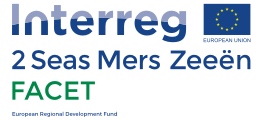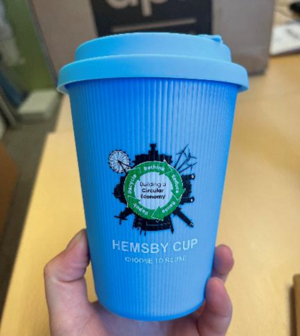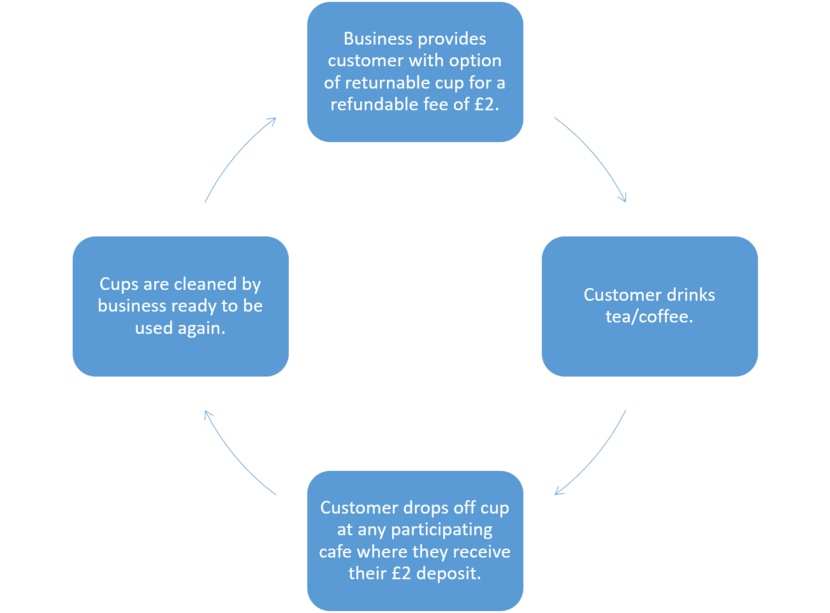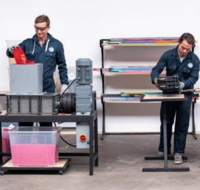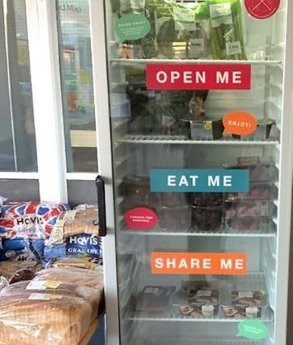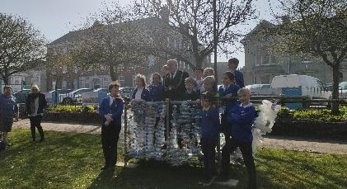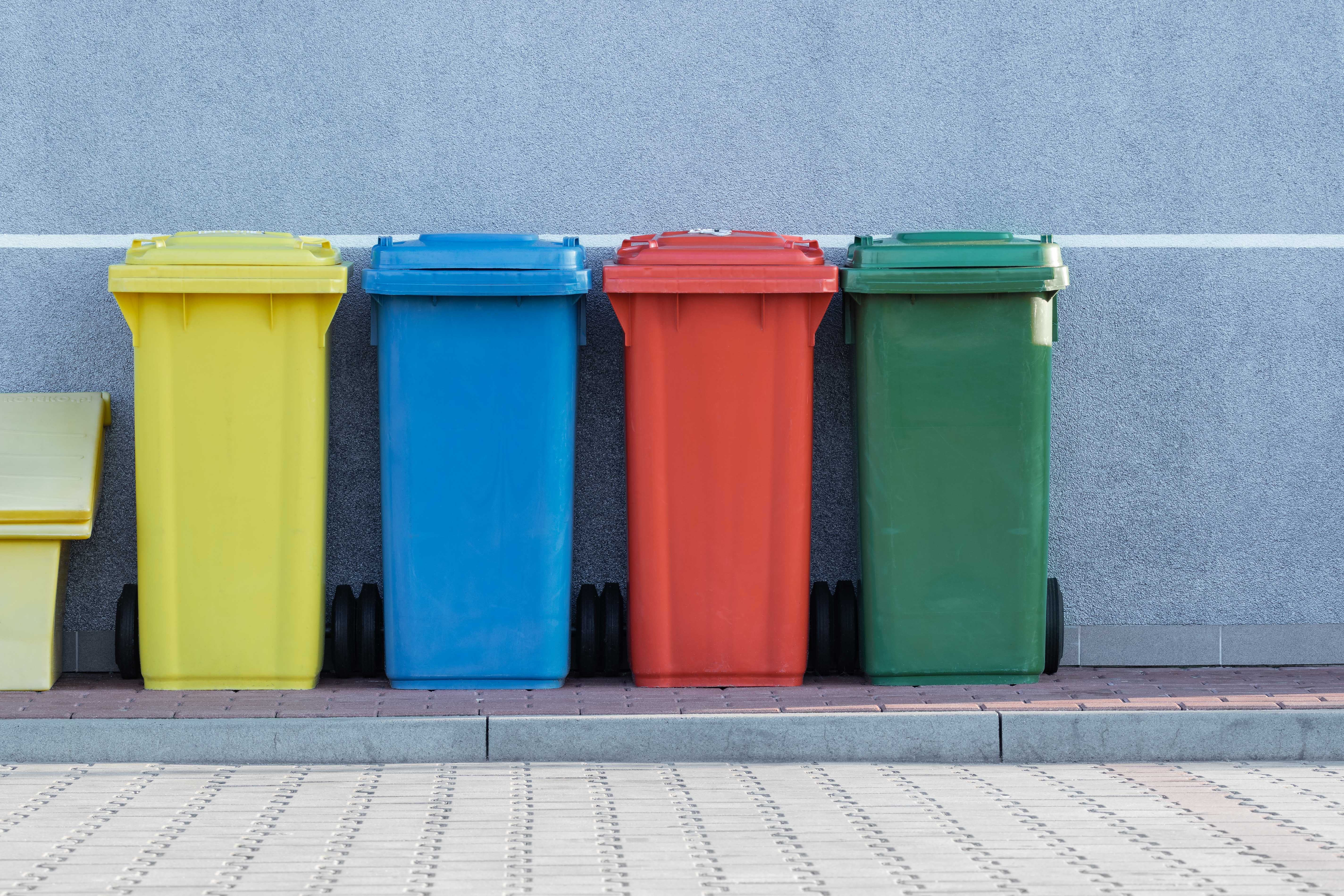Circular solutions for efficient visitor waste management and recycling services in the tourism sector
The pilot
Visitors generate large volume of mixed packaging waste and don’t place waste in correct bins often to allow recycling. We’ll work with entrepreneurs & visitors to increase circular economy using four processes concurrently for maximum impact:
- Adopt a point of sales solution such as a reusable cup scheme; a circular solution that will reduce the amount of unnecessary disposable packaging entering the waste stream. This will support small independent vendors to enhance the kind of green credentials that promotes customer loyalty;
- Incentivize visitor engagement with the pilot through low-tech gamified waste disposal. We plan to explore the use of interactive bins that incentivize participation in the pilot;
- Opimisation of street and business waste collection to combat the age-old issue of street bin capacity. Having highlighted the most heavily used bin locations we’ll trial the use of smart bins and on-the-go recycling to help streamline refuse collection for greater efficiency of resources;
- In addition to trialing the the solutions described above, we plan to help set up a social enterprise project to engage entrepreneurs and the community in reducing the demand for new plastic products through the re-manufacture of post -consumer plastic.
By motivating behaviour change to re-use & recycle plus optimizing waste management, we will increase recycling of SUP, estimating savings on energy recovery and a reduction of waste vehicle journeys. Also the carbon footprint will be reduced by 287 tonnes. The following pilots have been developed to realize these processes.
1. Hemsby Re-usable Cups
The Hemsby Cup is a reusable cup designed to put a stop to single use disposable takeaway cups and get closer to becoming zero waste by adopting a circular deposit return system. The FACET project is funding the purchase of the reusable cups and lids, so the scheme is free for businesses to participate.
Background
Field research has shown that there is an issue of overflowing bins and resulting litter on Beach Road at Great Yarmouth. On street litter bins filling up quickly with bulky takeaway packaging. One of the causes is a current change in consumer behaviour. Since the outbreak of pandemic there is more takeaway packaging. Some facts:
• 7 million single use paper cups used and thrown away every day in UK.
• Less than 1% of cups are successfully recycled.
• 500,000 of these end up as litter which fill up our bins and pollute our rivers and seas. T
he first steps towards sustainability have been taken by companies. Businesses are switching from polystyrene to ‘greener’ paper cups, however, these are often not recyclable due to the wax lining. . This is where the Hemsby Cup comes in - a deposit scheme that costs customers nothing to make positive changes for the environment.
How does it work?
7 organisations participate in the project. These companies offer the Hemsby Cup to customers who are ordering takeaways. They will give you a £2 deposit. You should put this £2 aside to create a 'cup float'. When a customer returns a Hemsby Cup, refund them £2 using your ‘cup float’. Thoroughly wash and reuse cups that are returned, ready to be used again.
More information
Do you want to know more about the Hemsby re-usable cup? Click here.
In the news
https://www.greatyarmouthmercury.co.uk/news/business/reusable-cup-hemsby-great-yarmouth-8803686
2. Single use Plastic: Local Plastic Recycling- WasteSmiths
Within this pilot the project partners of FACET engage with businesses to collect post-consumer hard plastic packaging. The aim is to turn this plastic into a new plastic product.
In conjunction with the local college, we will develop products using collected plastic and undertake prototype testing.
3. Organic waste reduction
FACET is expanding the Community Fridge Network in Norfolk. The concept of the commumity fridge network is as following: local food businesses can donate ‘in date’ items for free redistribution to the local community in order to reduce food waste. Some facts:
- The average UK household wastes £730 a year by throwing away food and drink which could have been eaten;
- In addition, £3 billion is wasted by the food sector.
Community fridges provide business and individuals with the opportunity to share food that otherwise would have been wasted. They are public places where surplus food is shared between people in a community. Anybody can access the community fridge, there is no need to register, simply turn up during opening hours and make use of the facility and help good food from going to waste.
With the help of FACET the network is expanding. The opening of a new fridge will be in April, Date TBC.
4. On street waste interventions- Increasing capacity
Various concepts have been implemented by the project partners to combat street waste.
Smart bins
Smart bins are used to compact waste and increase capacity. What makes this bin even smarter? The bin itself will alert waste teams when bin is reaching capacity. Besides the main function bins can be used for other purposes. Businesses for example are welcome to inquire about advertising/ sponsorship
Lockdown Frames
Lockdown frames will help increase capacity by holding general waste and recycling bins. This increased capacity should help create a cleaner environment overall.
Ballot Bins
Working with businesses across the borough, ballot bins will be installed to reduce cigarette butt littering and engage the public. These ballot bins ask the user a question through text, for example: should the government do more to tackle littering? Waste can be thrown into the ballot bin into an opening under 'yes' or 'no'.
5. Behavior Change Campaign
BottleshipsGY
Three novel “Bottle Ships” will be installed across the borough in Gorleston, Great Yarmouth and Hemsby. They will be based on ships relevant to the area. The 'Bottle Ship' will be made up of 800 empty, plastic bottles and will be put together by Hatty + Young in St George's Park during the town's 'Paint the Town' event next month. Three lucky schools in the area will also be given the chance to take part in constructing the vessel. Thanks to all the little helpers from several schools in the area, who have done their part in helping to construct the vessel.
Each sculpture encourages consumers to deposit their empty plastic bottles into eye-catching artistic drop-off bins.
Nathan Barnett, General Manger of SEA LIFE Great Yarmouth, said "We are happy to be part of this community project, I think it's a fantastic way to help educate our future generations, local residents and visitors to the resort about the impact on plastic pollution in our SEAs. This is something that is close to our heart at SEA LIFE where we introduce our visitors to some weird and wonderful creatures, the threats that they face and what we can do to help protect our seas."
See what it looks like? Check the following link: https://fb.watch/cmdZjU7FMD/
